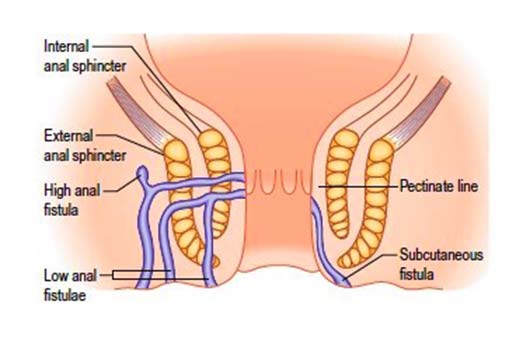
Fistula surgery is a medical procedure aimed at treating fistulas, abnormal connections between two organs or between an organ and the skin. While fistulas can occur in various parts of the body, anal fistulas are among the most common types that require surgical intervention. Understanding the procedure, recovery process, and potential risks associated with fistula surgery is crucial for patients considering this treatment option.
What is Fistula Surgery?
Fistula surgery, also known as fistulotomy or fistulectomy, involves the surgical removal of the fistula tract. During the procedure, the surgeon makes an incision along the length of the fistula tract to remove it completely. The goal is to eliminate the abnormal connection and promote healing of the affected area.
Procedure
As part of the fistula surgery cost near Chandigarh procedure, the surgeon will examine and assess the fistula thoroughly. This may involve diagnostic tests such as imaging studies to determine the exact location and extent of the fistula.
On the day of the surgery, the patient is administered anesthesia to ensure comfort throughout the procedure. The surgeon then makes an incision along the length of the fistula tract, carefully removing it while preserving surrounding tissues as much as possible.
Once the fistula tract is excised, the wound is thoroughly cleaned and any remaining infected or damaged tissue is removed. In some cases, the surgeon may need to perform additional procedures such as a sphincterotomy to improve drainage and prevent recurrence.
After the surgery is completed, the incision site is closed with sutures or left open to heal naturally, depending on the specific circumstances of the case.
Recovery
The recovery period following fistula surgery can vary depending on the complexity of the procedure and individual factors such as overall health and lifestyle habits. In general, patients can expect some discomfort and swelling in the days following surgery, which can be managed with pain medications and proper wound care.
It is important for patients to follow their surgeon’s post-operative instructions carefully to promote optimal healing and minimize the risk of complications. This may include:
Taking prescribed medications as directed
Keeping the incision site clean and dry
Avoiding strenuous activities and heavy lifting
Following a soft diet to avoid straining during bowel movements
Most patients are able to resume normal activities within a few weeks following fistula surgery, although full recovery may take several weeks to months depending on the extent of the procedure and individual healing response.
Risks and Complications
While fistula surgery is generally safe and effective, like any surgical procedure, it carries certain risks and potential complications. These may include:
Infection at the surgical site
Bleeding
Damage to surrounding tissues or organs
Recurrence of the fistula
Impaired bowel or urinary function
It is important for patients to discuss these risks with their surgeon prior to undergoing fistula surgery and to seek prompt medical attention if they experience any signs of complications during the recovery period.
Conclusion
Fistula surgery is a commonly performed procedure for the treatment of anal fistulas and other types of fistulas. By understanding the procedure, recovery process, and potential risks associated with fistula surgery, patients can make informed decisions about their treatment options and take an active role in their healthcare journey.Consider consulting a qualified healthcare provider for personalized advice and guidance if you are considering Fistula Thread Treatment. Arogyam Piles Clinic offers expert consultation and treatment for fistula and other colorectal conditions, ensuring comprehensive care and support for patients throughout their treatment journey.



